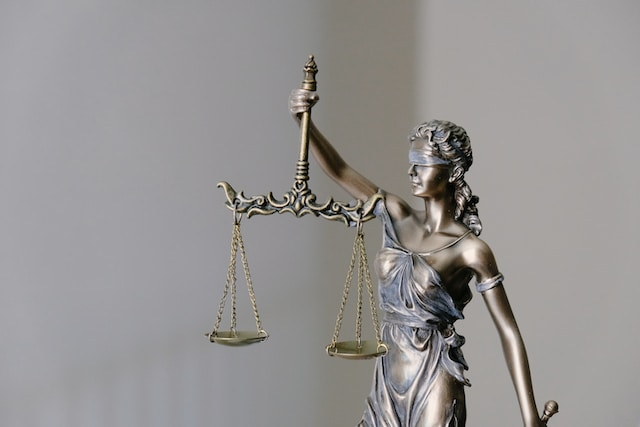This guide covers kinship hearings in Brooklyn, addressing their meaning, legal implications, and the importance of legal representation for those involved.
When it comes to family matters and legal proceedings in Brooklyn, kinship hearings play a crucial role. Kinship-proving hearings are vital in determining familial relationships, often arising in situations involving estates, guardianships, and child custody matters. Understanding the intricacies of these hearings, including their meaning, reasons, legal implications, and evidential proof processes, is essential.
In this comprehensive guide, we will try to delve into the world of kinship hearings, shedding light on what you need to know to navigate them effectively. If you require expert legal assistance and family law services in Brooklyn or beyond, keep reading till the end.

Kinship Hearings
Kinship hearings, also known as kinship-proving hearings, are legal proceedings held to establish familial relationships, particularly in situations involving estates, guardianships, or child custody disputes. These hearings aim to determine whether an individual is indeed related to the deceased, a child's biological parent, or a potential guardian.
Why Kinship Hearings Occur
Several reasons may prompt kinship hearings in Brooklyn, including:
Estate Matters
In cases where a deceased person's will is contested or when there's no will at all, kinship hearings help identify rightful heirs and beneficiaries. This ensures the fair distribution of assets.
Guardianship Disputes
Kinship hearings may be necessary when there's a dispute over who should have legal guardianship of a minor or incapacitated adult. The court must establish the biological or familial relationship to make an informed decision.
Child Custody Cases
In child custody disputes, kinship hearings are held to determine the biological parent-child relationship. This information is critical when deciding custody arrangements in the best interest of the child.
Legal Implications Of Kinship Hearings
Kinship hearings carry significant legal implications, and the outcomes can greatly affect the lives of those involved. Here are some key points to consider:

Property Distribution: In estate matters, the determination of rightful heirs can impact property distribution. The court's decision can affect individuals' financial futures and their ability to inherit assets.
Child Custody: In child custody disputes, the results of kinship hearings may determine who has legal rights and responsibilities over a child. This can have a profound impact on the child's upbringing and well-being.
Guardianship: For individuals seeking guardianship of a minor or an incapacitated adult, kinship hearings are crucial. They establish the legal basis for the guardianship arrangement, ensuring the best interests of the person in need of care.
Evidential Proof Processes
To establish kinship during these hearings, specific evidential proof processes are followed:
Birth Certificates
Birth certificates are often the first piece of evidence considered. They establish the parent-child relationship officially. However, in cases where birth certificates are unavailable or in dispute, additional evidence is required.
DNA Testing
In many kinship hearings, DNA testing is employed to confirm biological relationships conclusively. This scientific evidence can be a game-changer in settling disputes.

Witness Testimonies
Testimonies from individuals who can attest to the family relationship in question are valuable. These witnesses may include relatives, close family friends, or individuals with knowledge of the family's history.
Other Documentation
Any relevant documents, such as adoption records or affidavits, should be presented as part of the evidential proof process. Marriage certificates may be relevant when establishing spousal relationships in estate matters or child custody cases.
Legal Standards And Burdens Of Proof
In kinship hearings, as in any legal proceeding, specific legal standards and burdens of proof must be met. Here's what you need to know:
Preponderance of Evidence
In civil kinship cases, the standard of proof is usually the "preponderance of evidence." This means that the party making the claim must prove that it's more likely than not that their claim is true.
Clear And Convincing Evidence
In some kinship cases, particularly those involving the validity of a will or issues of guardianship, a higher standard known as "clear and convincing evidence" may apply. This requires a higher level of proof than a preponderance of evidence but falls short of the "beyond a reasonable doubt" standard used in criminal cases.

Beyond A Reasonable Doubt
In criminal kinship cases, such as cases involving alleged fraud or misconduct related to estates, the burden of proof is "beyond a reasonable doubt." This is the highest standard of proof in the legal system, requiring that the evidence be so compelling that there is no reasonable doubt as to the defendant's guilt.
Navigating Kinship Hearings In Brooklyn
Kinship hearings in Brooklyn are intricate legal processes that can have profound consequences for individuals and families. For expert guidance in kinship hearings, consider Litigation lawyer Queens at Ledwidge & Associates, seasoned professionals you can trust for estate planning NYC. Get in touch with them here.
About The Author
Louise R. is a seasoned legal writer with expertise in family law and estate matters. She is currently associated with Ledwidge & Associates.


No comments yet